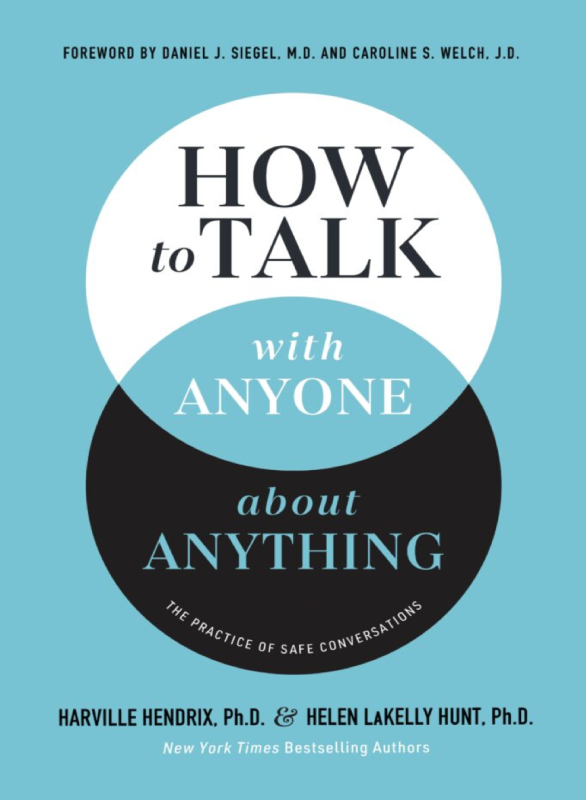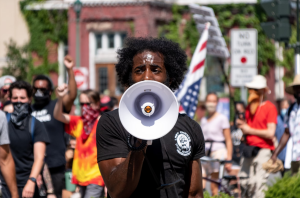Healing The Wounded Angry Men of the World Using The Revolutionary Tools of Safe Conversations

My father was a wounded angry man. When I was five years old he swallowed a quantity of sleeping pills believing his family and the world would be better off without him. Luckily he survived and was sent to Camarillo State Mental Hospital, but our lives were never the same again. I grew up wondering what happened to my father, when it would happen to me, and how I could keep it from happening to other families. I am happy to say my father not only survived but thrived and I was able to share our story in my book, My Distant Dad: Healing the Family Father Wound.
I swore I would never reach the point of despair that my father experienced, but after two failed marriages and a third one in trouble, I was feeling desperate and almost gave up. Luckily, my wife and I were able to learn how to transform our relationship. (See my welcome message at MenAlive.com, “Confessions of a Twice-Divorced Marriage Counselor”).
What helped us immensely was a book by Harville Hendrix and his wife Helen LaKelly Hunt, Getting the Love You Want: A Guide for Couples. Over the years, Harville and Helen have become friends and colleagues and I’ve had the privilege and honor to interview them numerous times for my podcasts. Most recently I interviewed Harville on July 11, 2024.
You can listen and watch our interview here.
Our conversation ranged over many areas including our gratitude to the philosopher Martin Buber for his early work understanding human relationships and healthy dialogue. In my book, The Warrior’s Journey Home: Healing Men, Healing the Planet I talked about Buber’s contribution to humankind.
“In his book, I and Thou, Buber describes two kinds of human relationships, I-It and I-Thou. In relation to nature, ourselves, and God, I-It sees us as separate. Others are to be used for our benefit. I-Thou sees us as involved in a sacred relationship of communion. Others are to be respected and cherished.”
As Buber says,
“Love is the responsibility of an I for a Thou.”
In The Warrior’s Journey Home, I noted that for most of our human existence, for at least two-million years, humans lived in intimate connection with nature. It has only been relatively recently, in the last ten-thousand years, that we have moved from our relationship to nature as a partnership and come to see our role as one of control and domination.
I quoted Joseph Campbell in his book, The Power of Myth, says
“The Indians addressed all of life as ‘thou’—the trees, the stones, everything.”
He goes on to say,
“You can address anything as ‘thou,’ and if you do it, you can feel the change in your own psychology. The ego that sees a ‘thou’ is not the same ego that sees an ‘it.’”
In my interview with Harville he said,
“Martin Buber was the first one since Socrates to do anything substantive on dialogue. When I-Thou was published in 1925, Buber was a conduit for a new way to be in the world. But Buber didn’t operationalize it, that was something that Helen and I have done with our work helping couples over the years.”
Safe Conversations and Quantum Connections
Harville Hendrix, Ph.D., and his wife, Helen LaKelly Hunt, Ph.D., began by asking,
“Why do couples fight?”
What they discovered led them to develop a simple process of taking turns talking and listening in a structured way that creates safety in relationships. They found it works in ANY relationship, and they began teaching workshops to share the life-changing process. Now they are bringing what they have taught couples how to do in improving their relationships to all the other areas of human life.
At their website, Safe Conversations/Quantum Connections, you can learn about how Harville and Helen intend to teach 2.4 billion people, in the next twenty-five years, the simple practices that can literally save the world between now and 2050. They say,
“Quantum Connections brings the transformative power of Safe Conversations Dialogue Methodology and Tools to small businesses, large corporations, global communities, educational institutions, and community organizations, along with individuals, couples, and families.”
In their newly released book, How to Talk with Anyone About Anything: The Practice of Safe Conversations, Harville and Helen say,
“Most of us have felt invisible, unheard, devalued, and disconnected at one time or another. The fact is that we are wired to connect. It is not something we can do or stop doing. We are connecting beings. It is our nature.”
They go on to say,
“So why have so many of us experienced disconnection in recent times? We have become polarized politically and socially to the point that many feel they are invisible and vulnerable. In response, they go into self-protection mode and become defensive, because we all need to feel that we are valued and part of something bigger than ourselves.”
Why Healing Men is Important
I have been working with men and their families for more than fifty years. My work focuses on men for a number of reasons. First, my own experience and studies from around the world show that males die sooner and suffer from major diseases at rates higher than those of females. Second, the more I’m able to help men, the better things are for women and children. Third, unhealed men pose a major threat to the well-being of all.
The comedian Elayne Boosler captures this reality in a humorous and insightful observation.
“When women are depressed they eat or go shopping. Men invade another country. It’s a whole different way of thinking.”
Historian Ruth Ben-Ghiat, author of Strongmen: Mussolini to the Present describes the danger that certain men pose to their country and the world.
“Ours in the age of authoritarian rulers: self-proclaimed saviors of the nation who evade accountability while robbing their people of truth, treasure, and the protection of democracy.”
It is not by accident that each of the seventeen “protagonists” she describes in the book are male, including Benito Mussolini, Adolph Hitler, Vladimir Putin, and Donald J. Trump.
“They use masculinity,”
says Ben-Ghiat,
“as a symbol of strength and a political weapon. Taking what you want, and getting away with it, becomes proof of male authority. They use propaganda, corruption, and violence to stay in power.”
Richard V. Reeves, founder of The American Institute of Boys and Men, calls the upcoming U.S. election, “The Masculinity Election.” He goes on to say:
“The 2024 vote was set to be a referendum on the rights of women. Instead it has become a debate over the needs and desires of men. The question now is which model of manhood will win in November. The macho brawler of the Trump-Vance ticket, or the kindly ‘girl dad’ offered by Harris and Walz? The fighter or the coach?”
Reeves cites statistics showing a significant gender gap in voting intentions:
- Among likely women voters, Harris leads Trump by 14 points (55% to 41%) in the latest New York Times/Siena College poll while Trump leads by 17 points among men (56% to 39%).
- The gender gap among younger voters is especially stark, with women under 30 moving left while their male peers move right.
My own work over the last fifty-plus years is that men desperately want and need the healing I found in a men’s group that teaches and practices the kind dialogue that Harville Hendrix and Helen LaKelly Hunt plan to bring to the world. Our group has been meeting now for 45 years and hopes to continue meeting for the rest of our lives.
Truly we need a men’s health revolution and I look forward to working with Harville and Helen to help bring it about. You can reach Harville and Helen here. You can reach me at MenAlive.com and MoonshotForMankind.org.







